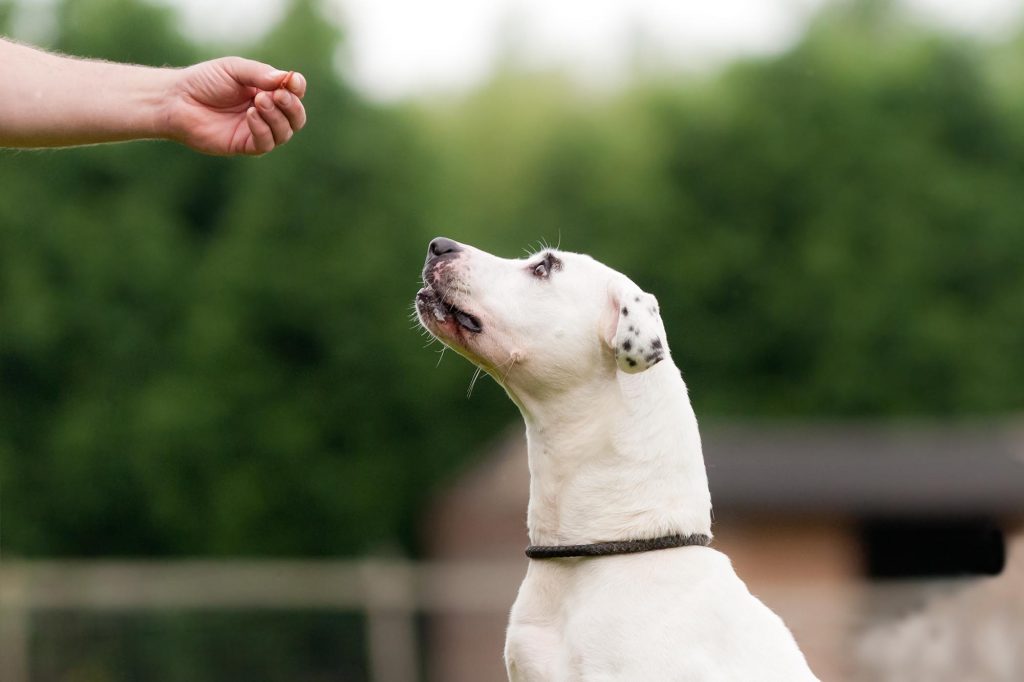Common pet behaviour problems
By Tina Button, Petschool Specialist
Some rescue animals have a challenging start to life and rely on their new owners or current foster carers to provide them with love, training, and general care to help them grow.
Rescue pets, like all pets, require dedicated training to help reduce their risk of developing or exaggerating existing behavioural issues. Not only does regular training help them settle into their new home, but it also increases their chances of being successfully adopted.
As a Petschool Specialist, I’ve met hundreds of owners that struggle to manage their pet’s behaviour issues. While it takes time, energy and commitment, overcoming behaviour issues is extremely rewarding for both owner and pet.
To help pet owners identify common behaviour issues and provide them with techniques to combat them, here are a few of my tips.
Separation related behaviours
If you notice that your pet is destructive in your absence or your neighbours report regular barking or howling, it could be a result of separation from you. Your pet’s response can be destruction to property, self-harm, howling, barking etc.
Now that we’re spending more time than ever with our pets it’s important to schedule in dedicated alone time, even when you’re at home. This can be achieved in numerous ways, including crate training, time outside with enrichment toys, changing the routine you use to leave home, and leaving home for short periods of time and gradually extending the time you are away.

Destructive chewing or scratching
Enrichment toys are a great way to combat this concern. Encouraging your dog or cat to chew on treat-dispensing toys such as the Kong Wobbler (my favourite choice), or providing your cat with a scratching pole will help reduce destructive chewing or scratching of household items, as well provide them with a sense of comfort in your absence.
Applying pheromone sprays, collars, or diffusers such as Feliway (cats) and Adaptil (dogs) may also aid in relaxing your pet.

Escaping
Is your pet an escape artist? You’re not alone! Escaping is an issue that can be a result of social isolation, boredom or vet diagnosed anxiety. To prevent your pet from escaping, use toys, treats or a puzzle feeder to create a mentally and physically stimulating environment for your pet. When leaving them at home alone, ensure they are in a safe and secure area to prevent escape.
Resource guarding
Resource guarding is a trait sometimes exhibited by our pets. These pets view their food, toys or bed as valued items that require protection. Food guarding can be a complex issue, especially for adult animals. So, if your pet demonstrates aggression towards humans or other animals while eating or playing, please seek expert advice from a trainer as soon as the behaviour is noticed.
To prevent a puppy from food guarding, you can train them by hand feeding part of their meal and using food as a reward. If this is not possible, have your puppy sit before giving them their meal, then walk away and allow them to eat comfortably.
Another exercise involves working on recall skills. When feeding your puppy, put a small amount of food in their bowl, attach them to a long lead and recall them away from their bowl. When they come to you, reward them with a treat that is highly valued. Do not remove your puppy’s food once you have given it to them, this can increase guarding behaviour and reduce the trust your dog has in you.
Digging
Digging up the lawn or tearing up the veggie garden is another problem pet owners face. If you catch your pet in the act, avoid punishment or harsh words. Instead, provide them with a designated digging area by filling a kids’ play pool with sand and hiding treats throughout. Not only will it give them a designated digging area, but it will keep your veggie patch safe and healthy! If you can, place a solid barrier around your garden until your pet has outgrown the behaviour, to prevent them getting into the garden in the first place.
Where to find help
Every animal is different, so it’s important to seek expert advice tailored to your pets’ needs. For more information on Puppy School training classes, speak to your local Petstock store or visit our Puppy School page.
For vet advice, find your local Petstock VET or speak to a vet via our Petstock VET Chat service.
Though it may take time, dedication and lots of patience, thorough training will provide you with confidence as a pet owner and help your rescue pet become settled in their new home environment.